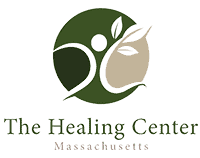Addiction continues to impact communities across Greater Boston, leaving families searching for trustworthy treatment options and reliable support. With a diverse population and a wide range of needs, the city and surrounding areas have developed an extensive network of addiction treatment centers, recovery programs, and community resources. Understanding these options is the first step toward choosing the right path for yourself or a loved one.
Addiction services in Greater Boston are designed to meet people where they are, whether they’re seeking inpatient care, outpatient support, medication-assisted treatment, or community-based recovery groups. Many centers also address co-occurring mental health conditions, recognizing that lasting recovery often requires treating both substance use and underlying emotional struggles. These programs reflect Boston’s commitment to comprehensive, evidence-based care that supports individuals through every stage of recovery.
This guide is here to simplify the process of finding help in Greater Boston. From specialized rehab centers to local support organizations and emergency resources, you’ll discover the many avenues available for overcoming addiction and building a healthier future. Whether you’re beginning your search for treatment or exploring aftercare options, the resources outlined here provide a roadmap toward hope, healing, and long-term recovery.
The Impact of Addiction in the Greater Boston Area
Addiction has deeply affected Greater Boston, with the region reflecting alarming statewide trends. In Massachusetts, the opioid-related overdose death rate rose to about 33.5 per 100,000 people in 2022, a 2.5% increase from 2021, totaling over 2,357 deaths. Boston alone recorded 352 opioid-related fatalities in 2022, the highest annual total on record—marking a 36% increase since 2019. While encouraging declines emerged in 2023 and 2024—like a 10% drop in Massachusetts overdose deaths in 2023 and a 38% decrease in Boston’s overdose deaths in 2024, the lowest since 2015 —the crisis remains a pressing public health concern.
The impact is uneven across Boston’s neighborhoods. Areas such as Dorchester, Roxbury, and Mattapan consistently show elevated rates of premature mortality, driven in part by substance use and social determinants of health. Historically, the South End has seen exceptionally high rates of substance use–related emergency department visits—over 12,000 per 100,000 population, followed by South Dorchester and Mattapan. Perhaps most visible is the area known as “Methadone Mile” or Mass. and Cass, which has become a focal point for the region’s opioid crisis. This stretch around Melnea Cass Boulevard has long served as the epicenter of addiction visibility, with large encampments and open-air drug activity, especially following the closure of nearby treatment facilities.
Beyond these numbers lie the human stories—of families disrupted, neighborhoods strained, and communities striving for solutions. Public health leaders, providers, and advocates are responding with innovative and equity-based strategies. From expanding harm reduction and naloxone access to developing neighborhood-centered treatment and support networks, Boston continues to drive change. However, given the ongoing racial disparities—especially among Black and Latinx residents—and the evolving nature of the overdose crisis, strengthening access, reducing stigma, and enhancing community care in hard-hit neighborhoods remain urgent priorities.


Greater Boston Addiction Centers And Rescources
The state of Massachusetts has taken strong initiatives in order to combat the growing addiction and mental health crisis that the state has faced in recent years. Greater Boston, Massachusetts, offers a range of addiction centers and resources to support individuals struggling with substance use disorders. Here are some key resources in the Greater Boston area:
Massachusetts Substance Use Helpline: This statewide helpline offers information and resources for individuals seeking help with addiction. You can reach them at 1-800-327-5050.
Massachusetts Bureau of Substance Addiction Services (BSAS): The BSAS provides information about treatment and recovery services, including a directory of licensed treatment providers in the state. You can visit their website for more information.
McLean Hospital: Located in Belmont, McLean Hospital offers comprehensive addiction treatment services, including inpatient and outpatient programs. They provide specialized care for various substance use disorders.
Boston Medical Center (BMC): BMC’s Grayken Center for Addiction is a leading center for addiction treatment and research. They offer a range of services, including medication-assisted treatment (MAT) and outpatient care.
The Dimock Center: This center, located in Roxbury, provides substance use disorder treatment services, including outpatient programs, counseling, and support groups.
Learn to Cope: Learn to Cope is a support network for families and loved ones of individuals struggling with addiction. They have chapters throughout Massachusetts, including in the Greater Boston area, where you can find peer support and education.
SMART Recovery: SMART Recovery is a science-based, self-help addiction recovery program. Meetings are held throughout the Greater Boston area and can be a valuable resource for individuals seeking peer support.
Alcoholics Anonymous (AA) and Narcotics Anonymous (NA): Both AA and NA have meetings throughout the Greater Boston area. These 12-step programs offer support for individuals recovering from alcohol and drug addiction.
Massachusetts Organization for Addiction Recovery (MOAR): MOAR is an advocacy organization that provides resources and support for individuals in recovery and their families.
RIZE Massachusetts: RIZE Massachusetts is a nonprofit organization dedicated to addressing the opioid epidemic. They support initiatives focused on harm reduction, treatment, and recovery.
Recovery High Schools: There are several recovery high schools in Massachusetts, including the Greater Boston area, that offer education and support to students in recovery from substance use disorders.
Community Health Centers: Many community health centers in Greater Boston offer substance use disorder treatment and support services. These centers often provide affordable care options.
Remember that seeking help for addiction is a courageous step, and there are many resources available in the Greater Boston area to support individuals and their families on their journey to recovery. It’s essential to reach out to these organizations directly to learn more about their services and availability. Additionally, consulting with healthcare professionals or addiction specialists can provide personalized guidance for your specific situation.

Request a Confidential Callback
Understanding Options for Addiction Treatment In Greater Boston
In Greater Boston, there are various treatment options available for individuals seeking help for addiction. These treatment programs often involve a combination of medical, behavioral, and supportive services to address the unique needs of each person. Some treatment options include:
Inpatient or Residential Treatment: Inpatient programs provide a structured environment where individuals live at a treatment facility for a set period, typically ranging from a few weeks to several months. These programs offer intensive therapy, medical support, and 24/7 supervision.
Outpatient Treatment: Outpatient programs allow individuals to receive addiction treatment while living at home. These programs are suitable for those with less severe addiction issues or who have completed inpatient treatment. Outpatient treatment includes counseling, group therapy, and medication-assisted treatment (MAT).
Medication-Assisted Treatment (MAT): MAT combines medication with therapy and counseling to treat substance use disorders. Common medications include methadone, buprenorphine, and naltrexone. MAT is effective in treating opioid and alcohol use disorders.
Counseling and Therapy: Individual and group counseling sessions are essential components of addiction treatment. Therapists and counselors help individuals explore the underlying causes of their addiction and develop coping strategies.
Detoxification Services: Detox programs provide medical supervision and support to individuals going through withdrawal from drugs or alcohol. It’s often the first step in the treatment process.


Using Insurance to Cover The Cost of Rehab in Boston, MA
Paying for addiction treatment is often one of the biggest concerns individuals and families face when considering rehab. Fortunately, many rehab centers in Boston accept health insurance, which can significantly reduce the financial burden of care. Insurance coverage may include services such as inpatient treatment, outpatient programs, medication-assisted treatment, and counseling, depending on the specific plan and provider.
Before beginning treatment, it’s important to verify what your insurance plan covers. Most facilities in Boston offer free insurance verification to help patients understand their benefits. This process typically involves a review of your plan to see which levels of care—such as detox, residential treatment, partial hospitalization (PHP), intensive outpatient (IOP), or outpatient therapy—are included. Understanding your coverage ahead of time can help you avoid unexpected costs and allow you to choose a program that fits both your needs and your budget.
In some cases, insurance may not cover the full cost of treatment. When this happens, many centers provide flexible payment options, financial assistance, or guidance with short-term disability or leave benefits that can help offset expenses. By combining insurance coverage with these resources, individuals seeking rehab in Boston can access high-quality treatment without letting financial barriers prevent them from getting help.
Take the First Step—Explore Greater Boston Addiction Resources Now
Finding the right addiction treatment in Greater Boston can feel overwhelming, but you don’t have to make this journey alone. At The Healing Center, we’re here to help you sort through your options, answer your questions, and guide you toward the program that fits your unique needs. Whether you’re considering inpatient rehab, outpatient care, or specialized therapies, our team is ready to walk you through every step of the process with compassion and clarity.
Now is the time to take action for yourself or your loved one. Reach out to The Healing Center today to verify your insurance, explore personalized treatment plans, and start building a path toward recovery. Every day matters, and the sooner you begin, the sooner healing can start. Call us now and let us stand beside you as you take the first step toward lasting change.

